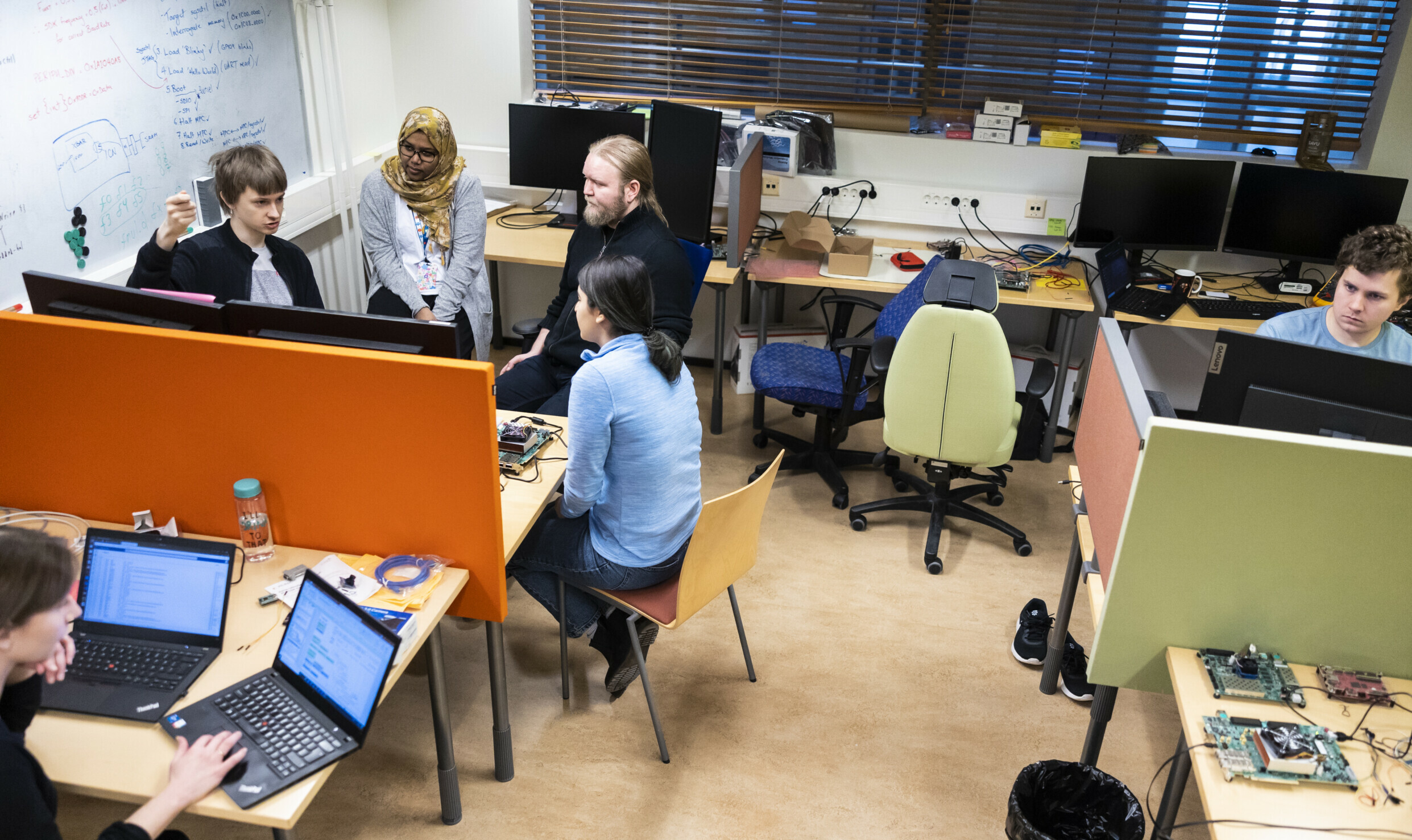Nine European partners have joined forces in a new education project called Edu4Chip (Joint Education for Advanced Chip Design in Europe) to enhance chip design capability in Europe. The goal is to design and implement master’s study programmes that will increase the number of industry-ready chip design experts in Europe.
The EU Chips Act aims to increase European sovereignty in chip design and manufacture. To achieve this goal, more skilled professionals for chip design are needed. The demand for experts is already very high in the industry and is expected to grow in the future. The Edu4Chip project, which started in October 2023, is directly linked to the goals of the EU Chips Act by contributing to solving this challenge.
The project includes nine European partners: Tampere University, Technical University of Munich, Technical University of Denmark, KTH Royal Institute of Technology, Institut Mines-Telecom and Fraunhofer, as well as SME partners MINRES Technologies, Logiq Works, and SyoSil Aps. The project is funded by the European Union in the Digital Europe Programme.
The main objective of Edu4Chip is to equip students with comprehensive knowledge and experience of the chip design process. To achieve this, a master’s study programme will be created, where the students will carry out a complete chip design, starting from the high-level description of the hardware and ending with the actual manufacturing (i.e., tape-out) and test of their chips. Trainees in the programme will also have the opportunity to specialize in chip design within a specific direction, such as for low-power design fostering sustainability, secure hardware design, or design for AI.
Chip design involves several challenging tasks and requires knowledge of the latest design tools, and it is demanding to divide all this effort into study modules and courses. This is why the project partners are joining forces to create this since currently there is no study programme like this available in the partner universities.
Edu4Chip aims to train more than 150 European and 100 non-European students per year for a career in the European chip design industry. A strong collaboration with industrial partners allows for excellent education and preparation for their employment, thereby helping bring students into the European job market.
In Tampere, the project will continue the legacy of strong industry-academia collaboration developed in the SoC Hub initiative since 2020. The first concrete step at Tampere University is a new System-on-Chip design master’s study module that will begin in autumn 2024. The courses will be available for experts already working in the industry as well. The students will gain hands-on end-to-end expertise of real-scale SoC design, with concrete goals backed up by leading companies in the Tampere region.


